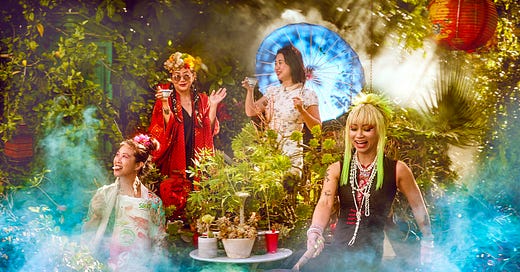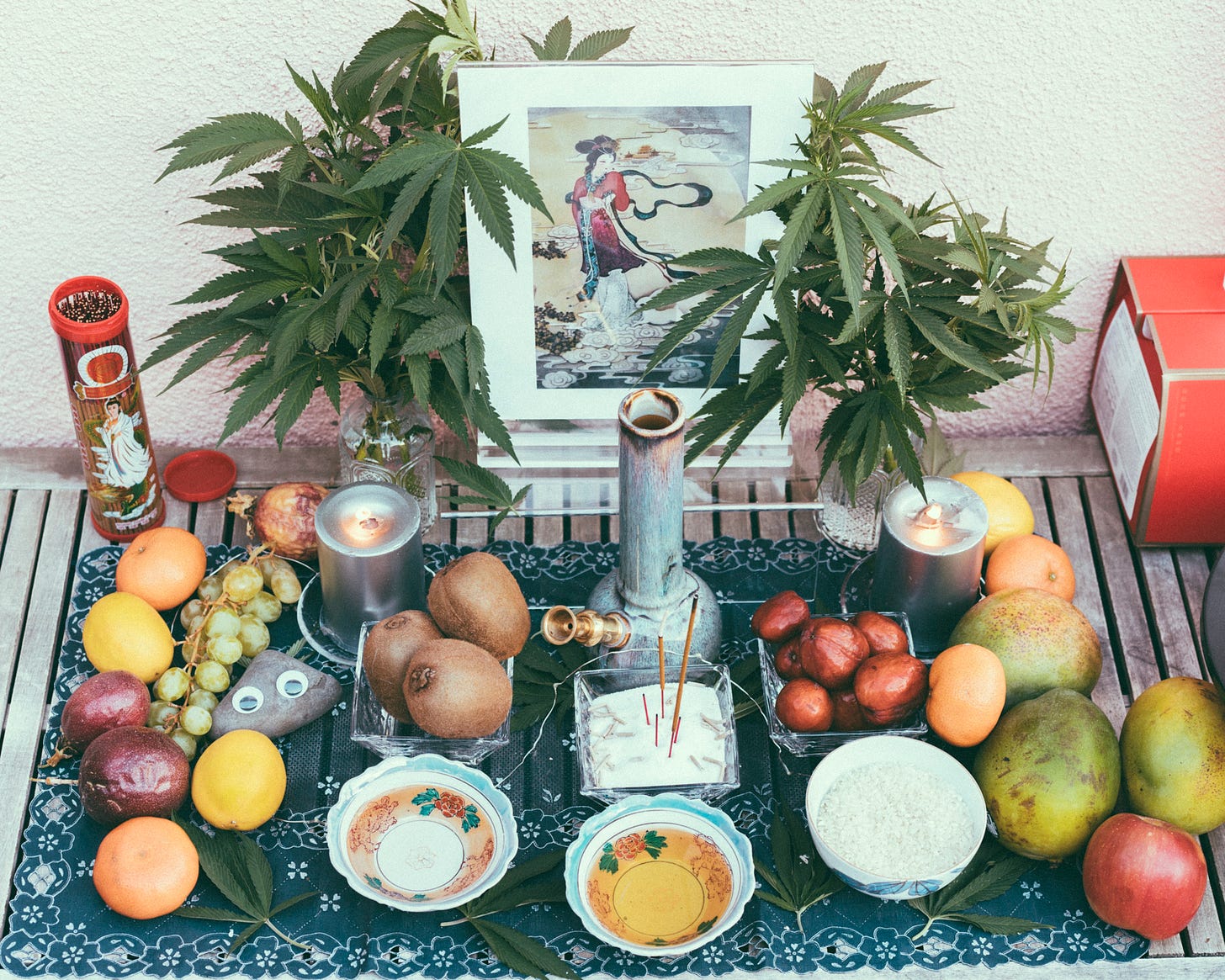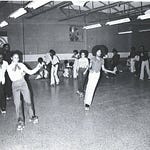What up weed heads!
Many stoner archetypes have emerged over the illustrious history of cannabis: the tie-dye wearing hippie, the blunt-blowing mogul, the blowtorch-waving dab bro, the spiritualist seeker… the stereotypes go on and on. But the weed aunty, I’d argue, is the most representative of contemporary weed culture’s shift away from the stoney-baloney slacker towards to the mystical feminine: she’s a middle-aged woman, high but in a wholesome way, and more likely to be dabbing CBD oil on her temples than passed out on the couch. Sure, she’s constantly sneaking outside to puff joints at the family reunion dinner, but all that weed also seems to have made her… hotter and wiser?
So on the eve of 4/20, the highest of all holidays, I’m bringing you a sweet interview with my favorite weed aunties: Christina Wong and Wendy Zeng. Christina and Wendy are mainstays in LA’s tight knit cannabis scene, and are known for throwing cannabis dining events under the name Mogu Magu.
In fact, “Magu” (麻姑) translates to “hemp goddess,” and is the name of a Taoist deity associated with cannabis—a sacred plant in ancient China. Chinese shamanism and herbalism has a long history with weed; cannabis is included in the oldest Chinese pharmacopeia, and ancient Taoists believed that consuming the plant with ginseng could give one prophetic powers.
While much of these folk traditions have been buried under prohibition, Magu—known for her long, talon-like nails and hemp-based healing elixirs—is becoming a bit of a cult figure amongst the new wave of Asian-Americans determined to claw back their culture from the War on Drugs.
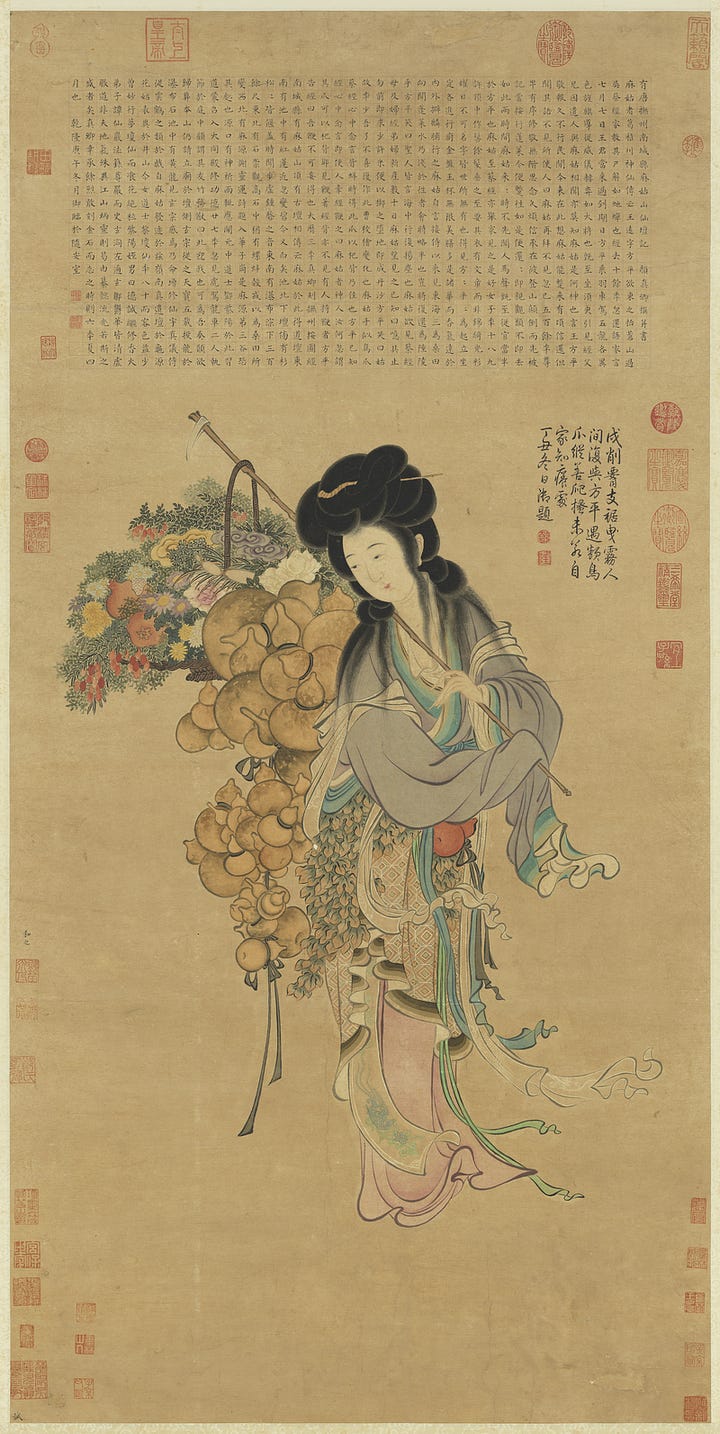

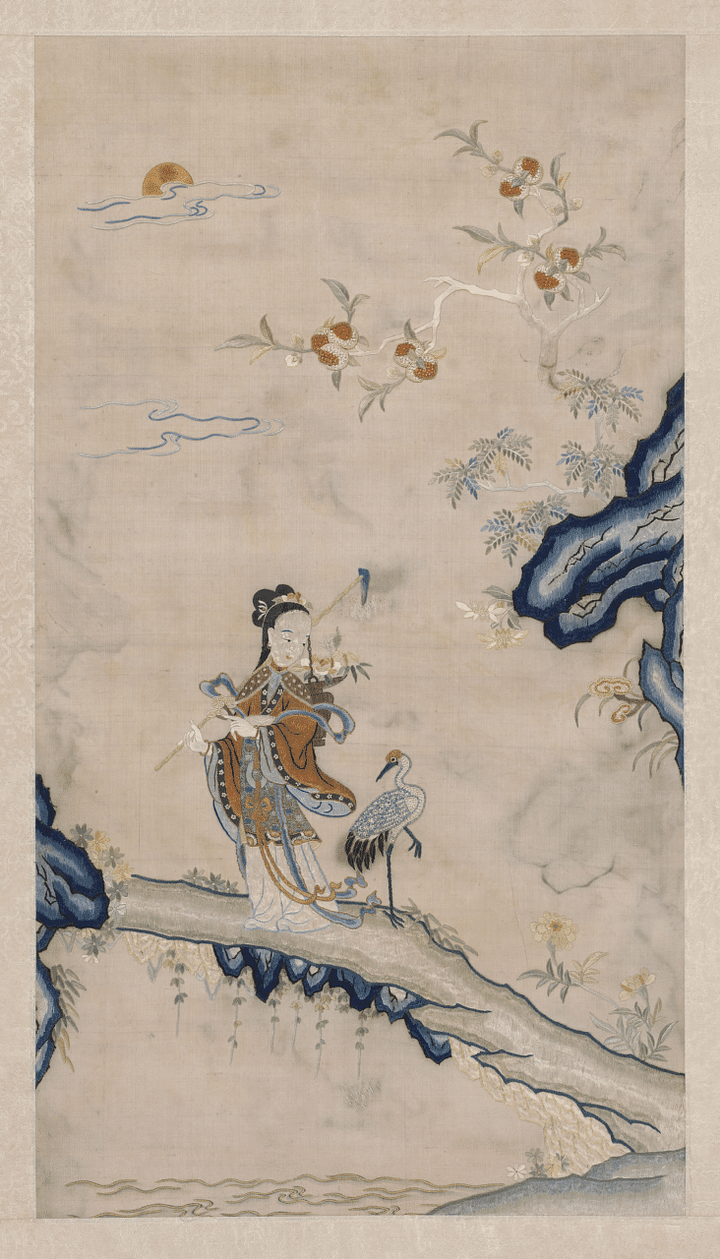
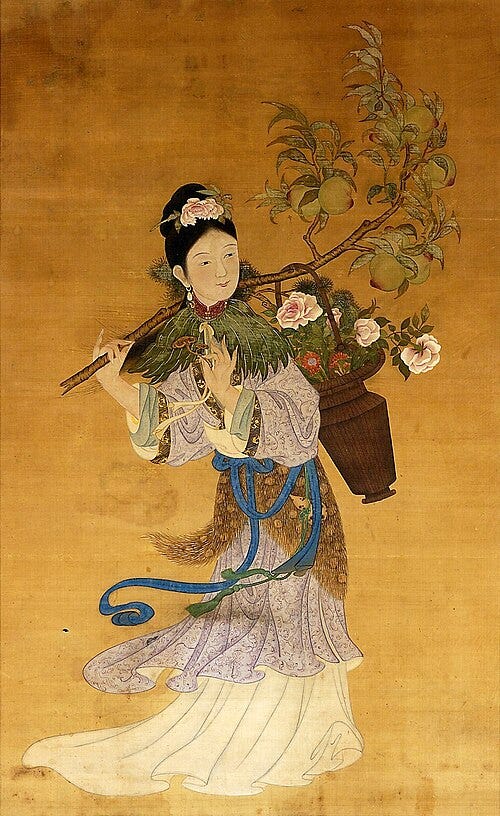
Reclaiming Asian weed culture through food is Mogu Magu’s mission. They’ve thrown epic dinner parties towards this cause, including a four-course feast last February that explored the complexity of spicy flavors in Asian cuisine, with each course paired with a different strain of hash. (Cannabis was part of the Silk Road!) They’ve also done hot pot parties with infused hot sauce, a “Diwali and dabs” celebration, and dumpling-making workshops.
This Saturday (4/19), Mogu Magu is hosting a comedy show + tasting event called Bad Asians—a “criticism-free” zone where the only judgement will be a competition overseen by a drag queen Kimchi involving comedians testing out terpenes and giving their tasting notes. If you’re in LA and wanna hang with the stoner slaysians (or just wanna lurk on the livestream), come thru!
I spoke to Christina and Wendy on a recent, beautiful spring afternoon, while they were prepping for the event. While sharing a joint and getting progressively baked, they exuded their sparkling weed aunty auras while discussing some of the craziest dishes they’ve ever cooked together. Our conversation spanned everything from the delights of mapo tofu bolognese and infused Pocky sticks, to why the next wave of cannabis culture is about making people who don’t smoke weed feel welcome. Check out the video above, and cop tickets to Bad Asians here.
Michelle: Hi Wendy, Hi Christina! Happy 420 I know we wanted to start this interview at 4:20pm. We had a little bit of tech delays, but you know, we can still think of it as 4:20.
Christina: Why not? It's always 4:20 around here.
Michelle: So I'm really excited to chat with you guys, because I've been wanting to for a while talk to you about the work that you're doing within the intersection of cannabis and Asian stoner culture, which the upcoming 420 holiday is the perfect time to kind of celebrate. So why don't we kind of start by explaining what Mogu Magu is.
Wendy: So “mogu” means mushroom, and “magu” means the hemp goddess of longevity. She's a deity in Taoism. But gu also means auntie. So together, it actually means your weed mushroom auntie. That's what we wanted to feel like in all of our gatherings: what would it be like to go to that kind of familial, comforting environment, like an auntie's house, except she's got mushrooms and weed for you.
Christina: It's really evolved from us hanging out, hosting gatherings into an AAPI culture food and cannabis collective. And as we started to learn more and uncover more stories about this Taoist deity Magu, we started finding more inspiration. If we were really embodied your rad mushroom weed auntie, who would that person be? What are these kinds of events? We try to bring together these familial cultural elements, with our favorite foods, along with cannabis, to help to destigmatize and show cannabis and culture side by side, and showing it in a different way, in more positive associations.
Wendy: And we're not the only aunties. The more that we explore this Magu figure, the more we notice how there's weed mushroom aunties all around us. Like you're kind of a cool weed mushroom aunty.
Michelle: I feel like there's this new stoner archetype of the weed auntie that's developing. I mean, obviously she's been around for a long time, but by naming it and kind of giving it space to bloom, I feel like we're starting to see a lot more older women step into… I mean, not to say we're old, but you know what I mean?
Christina: What it helped me embrace was like, I'm like, stepping into my auntie era. And it also reminds me of the importance of having aunties in our life, right? Like our parents aren't able to understand us, or give us support in this particular way that an auntie can. I wish I had cooler aunties, but they're not either. Sometimes we have to find or make our own. I didn't even know that this was something I needed in my life until we met Ophelia, and it was just like, holy shit. I didn't know I needed this person in my life. The first time, she was just like, I'm so proud of you, I love you. I was like, oh my god. I don't even know what to do with that information, because it just felt so right? My parents, I know they are [proud], but they don't get it, and having somebody who gets it makes such a big difference.
That's why it's healing ourselves and each other, because as we get high, as we talk, and we work through all of our things, that there's so much healing to be had. So that's what Mogu Magu is really about. Yes, there's this very aesthetic stoner core culture that we're creating, but also it's about: how can we heal our own traumas, and heal ourselves, and be the person that we want to be and shed this intergenerational trauma that we carry by exploring cannabis.
Listen to this episode with a 7-day free trial
Subscribe to Rave New World to listen to this post and get 7 days of free access to the full post archives.

